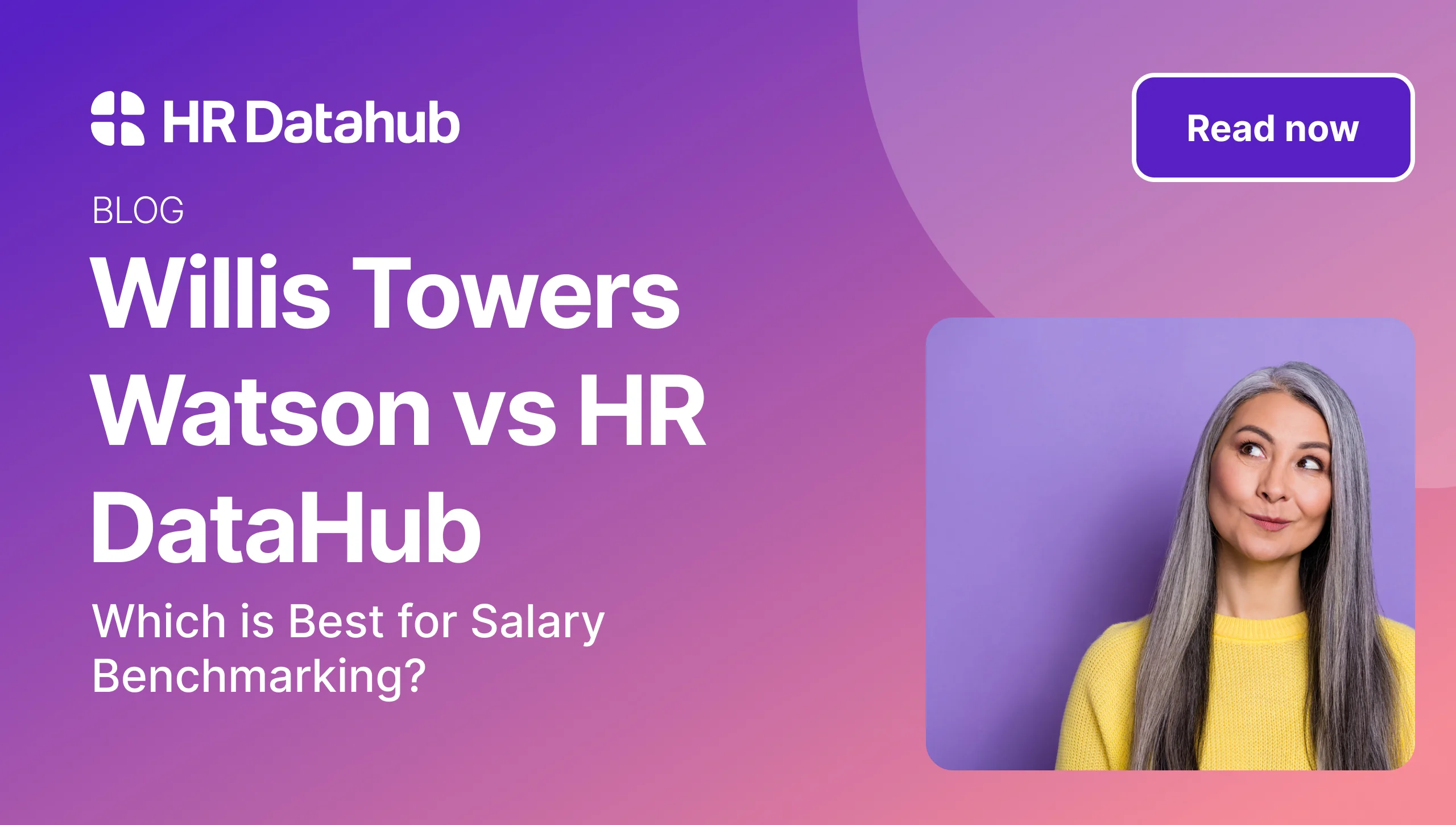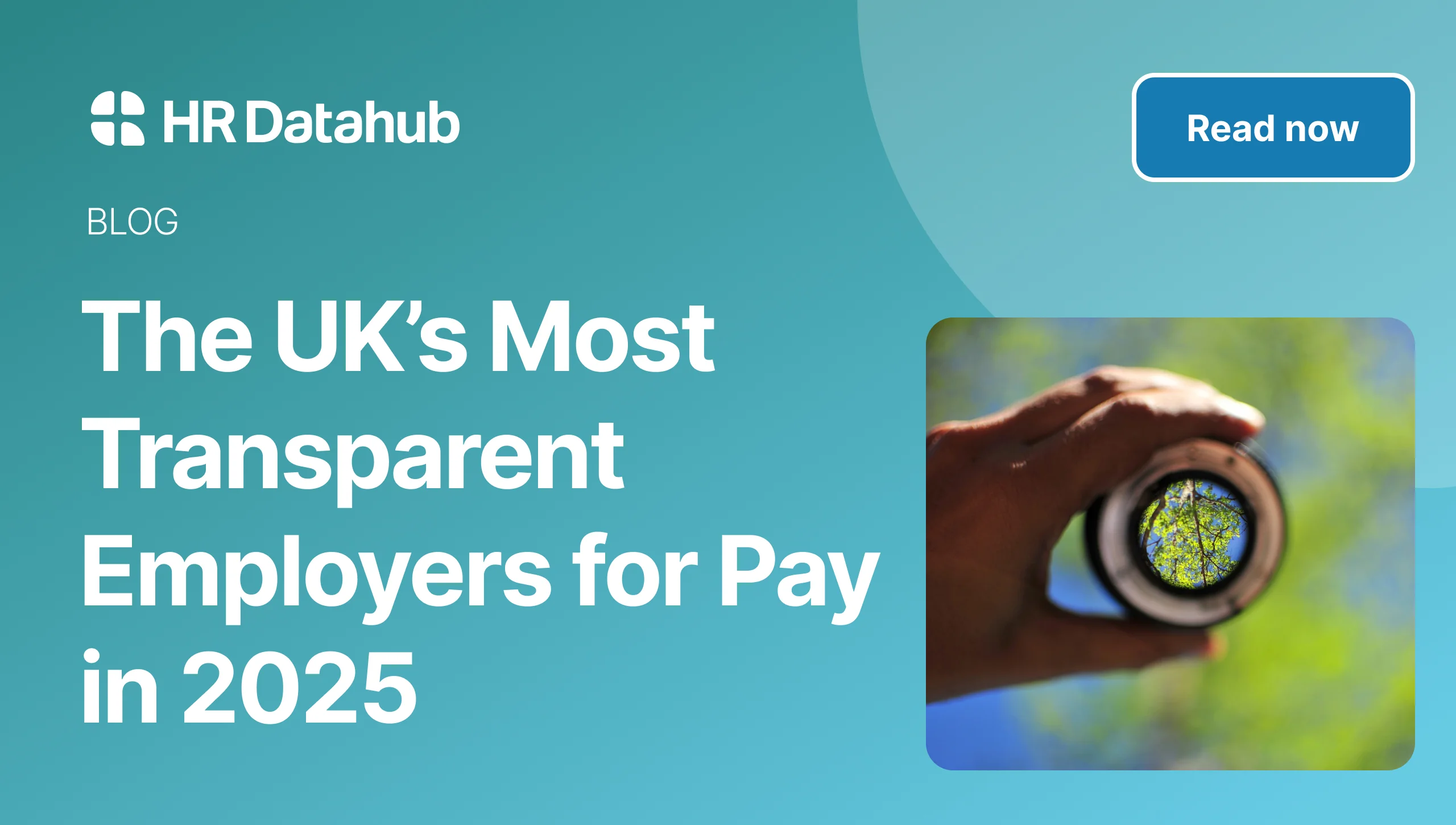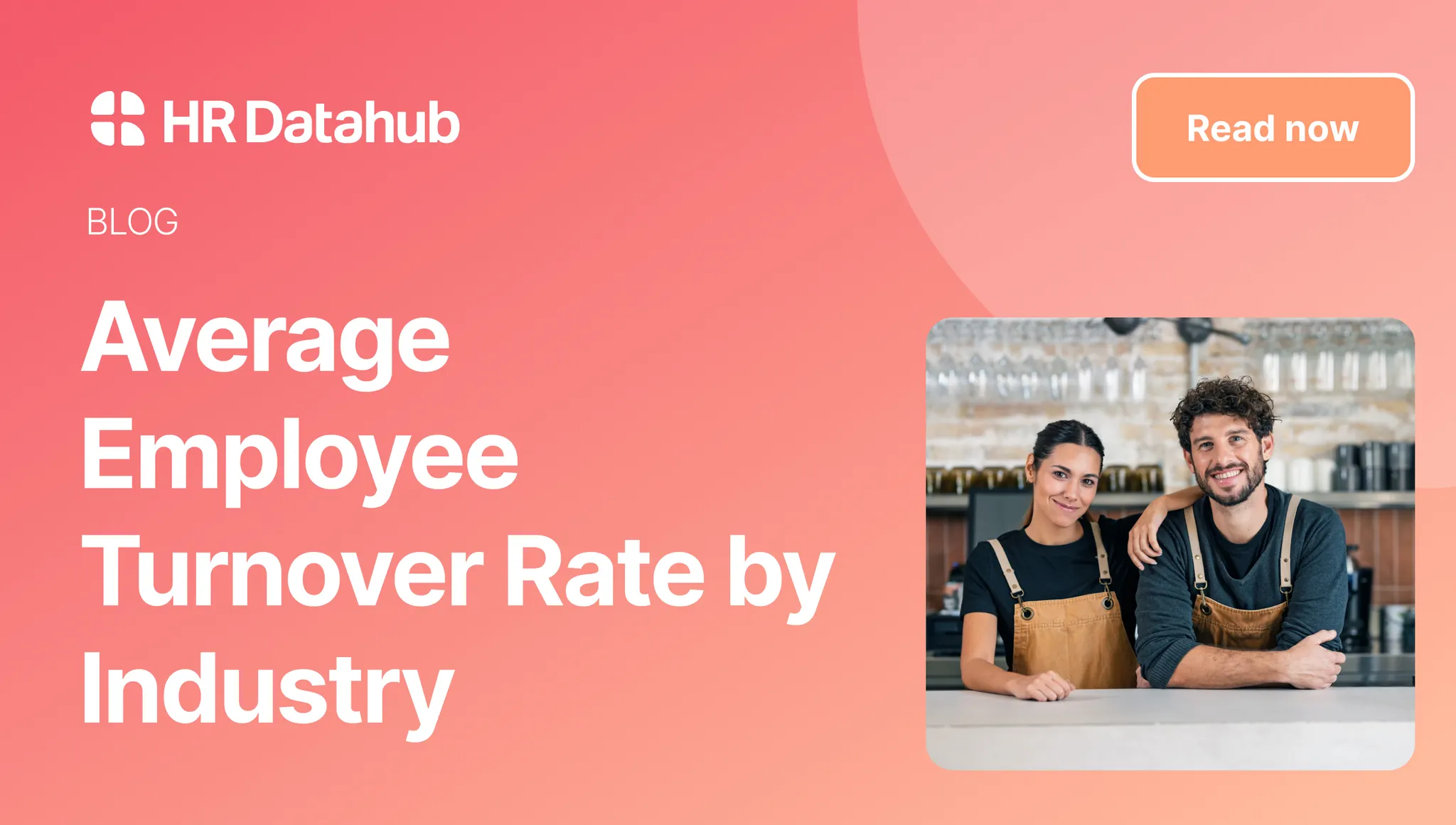

December 7, 2023
December 7, 2023
HR Trends UK Organisations Need to follow in 2024

Published by:
David Whitfield
,
CEO & Co-Founder
,
HR DataHub

Reviewed by:
Alexa Grellet
,
COO & Co-Founder
,
HR DataHub

10
MIN READ time
.avif)
December is the perfect time to shift your focus to the year ahead.
At HR Data Hub, we’ve researched and identified some of the biggest HR trends we expect to see throughout 2024, to help HR leaders plan better.
With so much economic uncertainty still occurring throughout the UK, employees are stressed and anxious. And HR departments are overworked and burnt out.
A major focus for next year will continue to be retaining talent. It’s time for HR leaders to reimagine company cultures that prioritise wellbeing for staff, and use technology to stay ahead of the competition.
Although 2024 may be another challenging year for HR departments, there are plenty of opportunities ahead to create inclusive and diverse work environments that support your people.
Let’s take a look.
Human Resource is taking a new form
HR is not about to get easier
It’s been a massive few years in the HR industry.
Covid-19 changed the dynamic of workplaces forever with remote work becoming the norm for many industries.
Many human resources professionals also took on more responsibilities, with HR teams broadening their remit to cover more than just traditional people management.
According to a recent report by Sage People, 91% of HR leaders said they felt the profession has changed dramatically over the last five years, leading to burnout and high stress levels.
While 57% said they love working in HR, a staggering 62% are considering leaving HR. Which has the potential to see a resignation wave with long-term implications for the HR industry.
And with 66% of HR leaders concerned about what the future holds, it’s not about to get any easier. The pressure is on to attract and retain staff in a highly competitive environment.
With increased costs of living and historically low unemployment, HR professionals will need to consider new ways of working - using data analysis, alternative recruitment methods and strategic insights to help businesses boost productivity, and lay the foundations for employee wellbeing.
Redefining a new world of work
If the pandemic taught us anything, it was that people love flexible work.
People welcomed the option of working from home, cutting down commute times and giving them more work-life balance than ever.
But many senior executives are calling time on remote work. They want people back to the office. With staff pushing back, we’re seeing the introduction of hybrid work models to meet the demands of businesses and their people.
Hybrid models support remotely based employees but require them to spend a minimum amount of time working from the office. This blended model is fast becoming the norm for many businesses because it offers flexibility and the chance for face-to-face collaboration. It’s likely to be more sustainable for many businesses in the long term, and something we expect to see more businesses introduce in 2024.
But this new world of work needs HR support to succeed, including how to design an employee experience to support this new way of working. One that encourages trust from leaders and employees.
HR still needs to fight for the top seats
Although HR professionals are responsible for attracting and retaining key talent that helps businesses succeed, many HR leaders believe they’re still not getting the recognition they deserve.
In a recent survey of HR leaders, over 60% believe business leaders continue to perceive HR as primarily an administrative function. They say they often get stuck on admin and processes, preventing them from offering strategic insights.
In the same survey, only 40% of HR executives said they were confident that employees fully understood the role of HR. While talent management is shared between HR executives and business leaders, focus areas have a definite discrepancy.
For example, HR leaders are more concerned about employee health and well-being, diversity, inclusion and equity. Business executives typically focus on productivity, efficiency, and financial growth.
HR professionals must communicate the importance of HR initiatives to show their potential, including how they can positively contribute to business growth and long-term performance.
One way to do this is by using data. HR departments need to use data analysis to show leaders the bottom-line impact of activities. For example, reporting on employee engagement levels, company culture and job satisfaction.
These insights can help businesses make the right decisions at the right time to keep top talent and boost performance.
Towards the end of Human Resources?
Given how much the industry has changed recently, many HR leaders believe “Human Resources” no longer adequately describes the role.
Instead, HR professionals say their roles align more with speed, agility and adaptability.
According to Sage, many HR professionals believe they’ll take a lead in employee health and wellbeing, talent management and workforce planning and diversity, equity and inclusion over the next three years. Most business leaders also agree.
Both agree that HR will play an essential role in helping make businesses be seen as a good place to work and improve company culture, but not the leading role.
It’s clear how much the remit of HR professionals has changed, and will continue to change, from the traditional tasks of hiring, admin and people training.
Employee Experience as the focus for the next year
While businesses have been discussing employee engagement for years, employee experience, or EX, is different.
HR professionals can use EX to drive employee engagement.
Employee experience is about the entire employee lifecycle, from the initial recruitment process, onboarding, day-to-day work tasks, professional development, through to an employee’s departure.
HR leaders need to invest in improving the employee experience to help retain top talent. One way to do this is by building a culture that focuses on employee recognition, which improves the overall employee experience.
According to Workhuman, companies that consistently recognise employees during the year have better rates of long-term employee retention and morale. And one way to fairly recognise your employees is through data.
Offering fair and appropriate benefits and compensation can improve employee engagement, leading to better retention rates and productivity.
Businesses also need to seek feedback from their employees - helping to shape their experience more positively.
Asking for feedback about ways to improve their experience, whether it’s through benefits or professional development, shows that you’re genuine about offering a more personalised approach that is tailored to your people’s needs.
Making your people feel appreciated and your business more attractive to potential employees.
Retention = Employee Experience + Employee Engagement
If you’re serious about evaluating your employees’ experience, you need to consider several elements, including:
1. The Physical Environment
This includes the workplace, office layout, amenities, technology, and tools that you provide to your employees to help them perform their job.
HR teams should be focused on creating a comfortable, safe, and functional physical space to support productivity and well-being.
2. Employees’ Emotional Well-being
Acknowledge the psychological needs of your people by looking at various factors like your workplace culture, work-life balance, workplace relationships, and staff recognition.
Supporting your people’s mental health has become even more critical in a post-COVID-19 world, to ensure your people maintain a healthy work-life balance with a clear line between work and personal life.
3. Work Processes
How easy is it for your people to access work procedures and relevant information to perform their job?
Is there clarity of their role and responsibilities?
How do they collaborate and communicate within their teams and across teams?
And what tools and technology do they have available to help them to perform their tasks more effectively?
While some of these areas don’t traditionally sit with HR to manage and support, they need to become key areas of focus, given their significant impact on the employee experience.
4. Learning, Upskilling and Development
People want to feel supported in their workplaces, with access to growth, learning, skill development and career development. This includes professional development, training programmes, mentorship, getting regular feedback and working in a supportive environment that encourages continual learning.
According to WorkHuman, HR teams can help people to make gains that benefit the entire business by pushing for more growth opportunities for employees.
5. Developing Company Culture
HR professionals and leaders who understand work is a part of an employee’s life – rather than a separate entity – can help to create an environment where all staff feel supported and valued.
HR leaders need to move towards people-first cultures that provide the support that people need to succeed. Regardless of the work model, whether it’s remote, hybrid, or in the office, using data and insights to understand what inspires your people can help you make the right investment in your talent and culture.
Diversity, equity and inclusion will become much more important
With many UK businesses facing increased economic pressure, there’s no doubt many are considering cost-cutting. Leaders will instinctively look to reign in spending to remain profitable. But diversity, equity and inclusion efforts shouldn’t be cut.
Investing in DEI is an investment in employee retention and your company’s culture. Both of which have long-term effects on your business performance.
This is where data comes in. By using data, HR teams can prove the impact of DEI initiatives, along with helping reshape culture to identify underlying issues and raise awareness of bias throughout the workplace.
Using data and openly sharing findings helps keep businesses accountable and creates a greater sense of trust.
A company’s DEI efforts need to be genuine. We’ve seen many big businesses that pay lip service to diversity criticised for inauthenticity, like Heathrow Airport. Their celebratory stories about ‘Women at Heathrow’ may have been well-intentioned, but given their median hourly pay for women is 14% lower than men’s the blowback of the campaign was overwhelmingly negative.
Employees will continue to seek out companies that take a stand on DEI issues. According to AIHR, 80% of people expect their CEO to take a public stand against discrimination.
We predict HR teams will shift the focus from inauthentic one-off promotional activities to systemic DEI - building an effective and authentic foundation for DEI. This starts with equity, by building programs that promote true inclusion throughout your organisation.
For example, using data to determine the prerequisites for screening talent, implementing pay equity, reskilling your people and offering equal access to training and PD.
Reporting on ESG Compliance is about to be paramount to attract and retain employees
Environmental, Social and Governance (ESG) has become a crucial factor in recruitment strategies. And it’s not just the green or community-focused strategies that are important, but how companies operate and report on these activities.
Our research shows that 56% of companies currently share their commitment to ESG to attract talent through formal reporting. But it’s more than just sharing your stats. Your activities need to be aligned with your business strategy - so they make sense to your potential and existing employees.
Research from Robert Hall claimed almost 40% of employees would seek out a new role if they thought their organisation wasn’t doing enough about ESG issues. This is particularly true for younger talent, with almost 50% of those in the 18 to 34 age bracket stating they’d look for a new role if their employer weren’t truly committed to ESG.
All of this highlights the importance for HR leaders to make strategic decisions that consider ESG factors. And to be honest and transparent when incorporating these into recruitment and retention strategies.
Data and technology to become HR’s best ally
Towards more technology investment in HR
Delegating redundant or time-consuming tasks to technology can unlock more time for your people to add value to your organisation.
HR, just other business areas, needs to determine how it can leverage and use existing and emerging technology to enhance its own productivity and boost worker productivity.
Investing in technology gives you access to more information. And knowledge is power. When you collect data about your people and the market, and analyse it effectively, you can stay one step ahead of the competition.
Although most HR leaders acknowledge that automation and analytics can free up their teams' time so they can focus on more strategic priorities, many leaders still aren’t where they want to be when it comes to HR technology investment. Only 59% of leaders currently use HR analytics and 54% use automation.
Another emerging area that’s helping HR professionals is AI-powered HR solutions. According to Human Resources Webinar, 85% of HR professionals said they plan to invest in or already have invested in AI-powered HR solutions, such as AI learning to support people’s learning and growth.
Technology can help turn HR into your company’s most valuable business department. The knowledge you get from analysing data helps you to better understand and improve business performance, positively imparting your employee’s experience.
Whether it’s streamlining onboarding processes, automating payroll, simplifying time and expenses, or offering greater personalisation to respond to job applicants, automation and AI can help you get more time to focus on strategy rather than admin.
The ability to receive live market information is the game changer
To make impactful decisions, HR teams need to get their hands on the right information - before the competition.
That’s where access to live and up-to-date data comes in. Because relying on outdated data, such as annual salary reports, is costly. You won’t get a true reflection of what’s happening in the market, which means you can’t make the right decisions about how much to pay your people to keep them happy. Or to offer new employees to entice them to onboard.
If you miss the mark and pay under the market you risk losing your people. But if you pay over, you risk losing your competitive edge.
The answer is HR DataHub. A simple but powerful salary benchmarking platform we’ve built for HR professionals. It gives you access to real-time insights and instant, localised and reliable job market data.
In a few clicks, you can find salary information for any job in the UK. Ensuring you keep updated with the job market to make data-driven salary decisions about how much to pay your people.
Power to the (HR) People
If you’re ready to get your HR power back, it’s time to invest in data, so you can make the right decisions.
Access to the right knowledge ensures you always stay one step ahead of the competition.
If you're interested in discovering more, book a demo with our team, and learn how HR DataHub can help your business to build the right teams to accelerate your business.
TABLE OF CONTENTS




